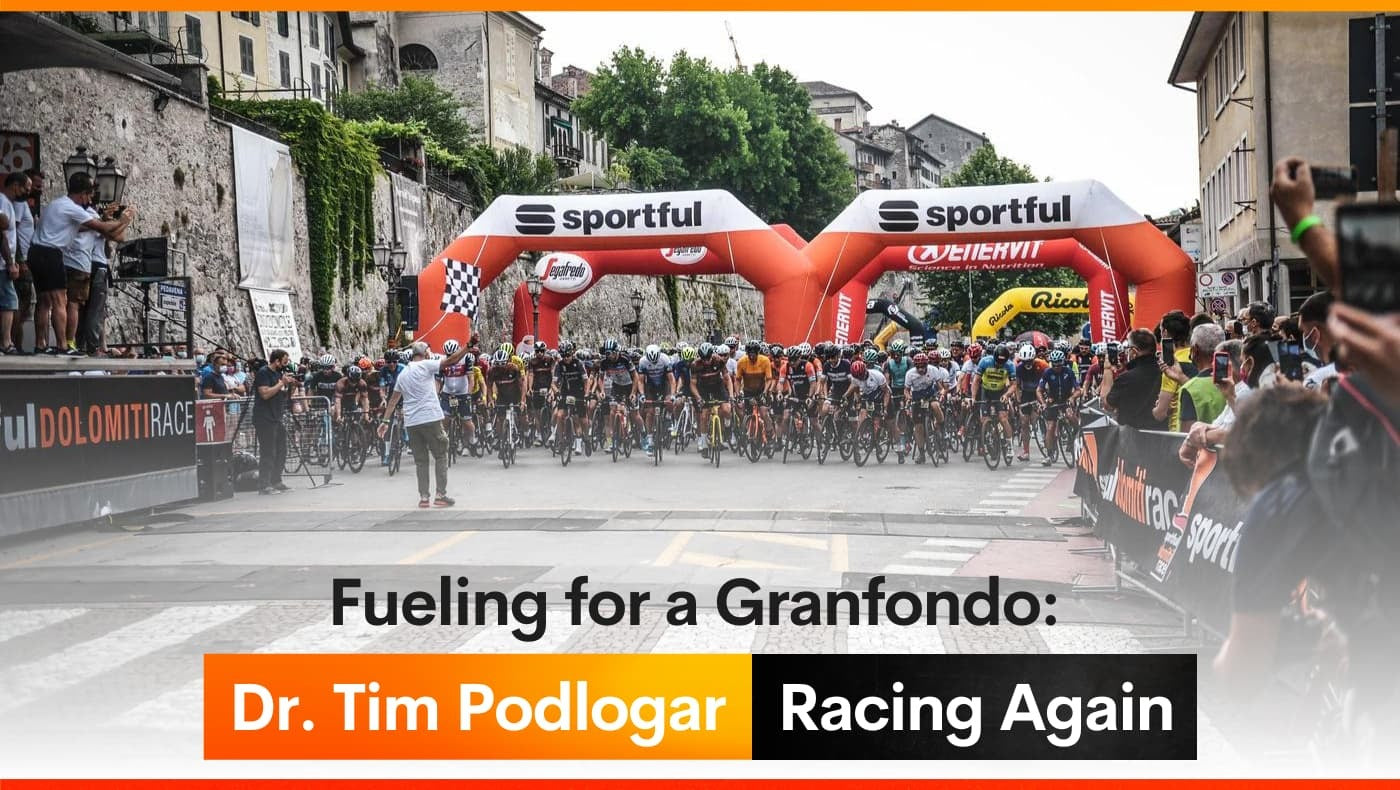It is often said that scientists live in the labs, which is why personally I make every effort to bridge the gap between science and practice. This is also part of the reason why I devote plenty of time to my own training. I am in love with cycling and recently I took part in a Sportful Dolomiti Race.

This grueling race is 204 km long and has nearly 5 thousand meters of elevation gain. In this blog post I'd like to present you my nutrition for the race that allowed me to finish in the 21st place and experience absolutely zero muscle cramping.

Italy was hit by the first heat wave just a few days before the race and it was obvious that the heat load would be tremendous. I was lucky, as I envisioned this months ago, so I've successfully finished my heat acclimation beforehand, and I was ready for the heat. The only concern I had was that my maximal sweat rate was in excess of 2 liters per hour, which is huge! As it turned out, this presented the biggest challenge in the race.
In the last three days before the race, I avoided eating fibrous foods, so I mainly lived on gummy bears, rice, and Icelandic Skyr. This way I wanted to get rid of any residuals in the gut that would increase my body mass.

I travelled to the event site a day earlier and following the arrival I immediately headed out for a short activation ride. It was mainly easy riding with one 3 minute long hard effort in order to signal the body that carbohydrates are needed and to hopefully achieve glycogen super-compensation.
After the ride, I had a Regen, and 45 minutes later I started loading with Haribo gummies and salty rice. This way I wanted not only to achieve optimal muscle and liver glycogen storage but also to increase the amount of water stored in the body, as the next day every gram of water would play an important role. I probably had more than 10 grams of carbohydrates per kg of body mass until the end of the day, and I felt pretty much full before going to bed.
In the morning, 2.3 hours before the start, I had 2.3 g/kg of salty rice with fructose in a 2:1 ratio with an aim to top up both glycogen stores - liver and muscle.

For the race I took two bottles with a capacity of 750 ml and filled them with the Nrgy Unit Drink (3 Nrgy Units altogether) and took 11 Nrgy Unit Gels (11 Nrgy Units) with me. The plan was to have 2 Nrgy Units per hour, which should be optimal. 14 Nrgy Units altogether meant an intake of approximately 630 grams of carbohydrates in just under 7 hours! This equates to 90 grams per hour.
Energy wise, my strategy worked perfectly. No feeling of low blood sugar and no muscle cramps whatsoever. Even when I finished the race, I still had plenty of energy left and my brain was working normally. This tells me that my liver glycogen was not depleted and an ability to concentrate likely contributed towards not making any stupid mistakes on the descends that I was very afraid of (I'm a rookie in this skill).
As expected, the only problem was hydration. Unfortunately, I was limited to feeding stations, which was a big downside compared to other competitors, who had team members along the route providing them water and food. I had quite a few moments in the race when I ran out of water and had to drastically slow down. But as soon as I got the water, I started to gain ground again. So, yes - hydration is extremely important! A lesson for the upcoming year.
